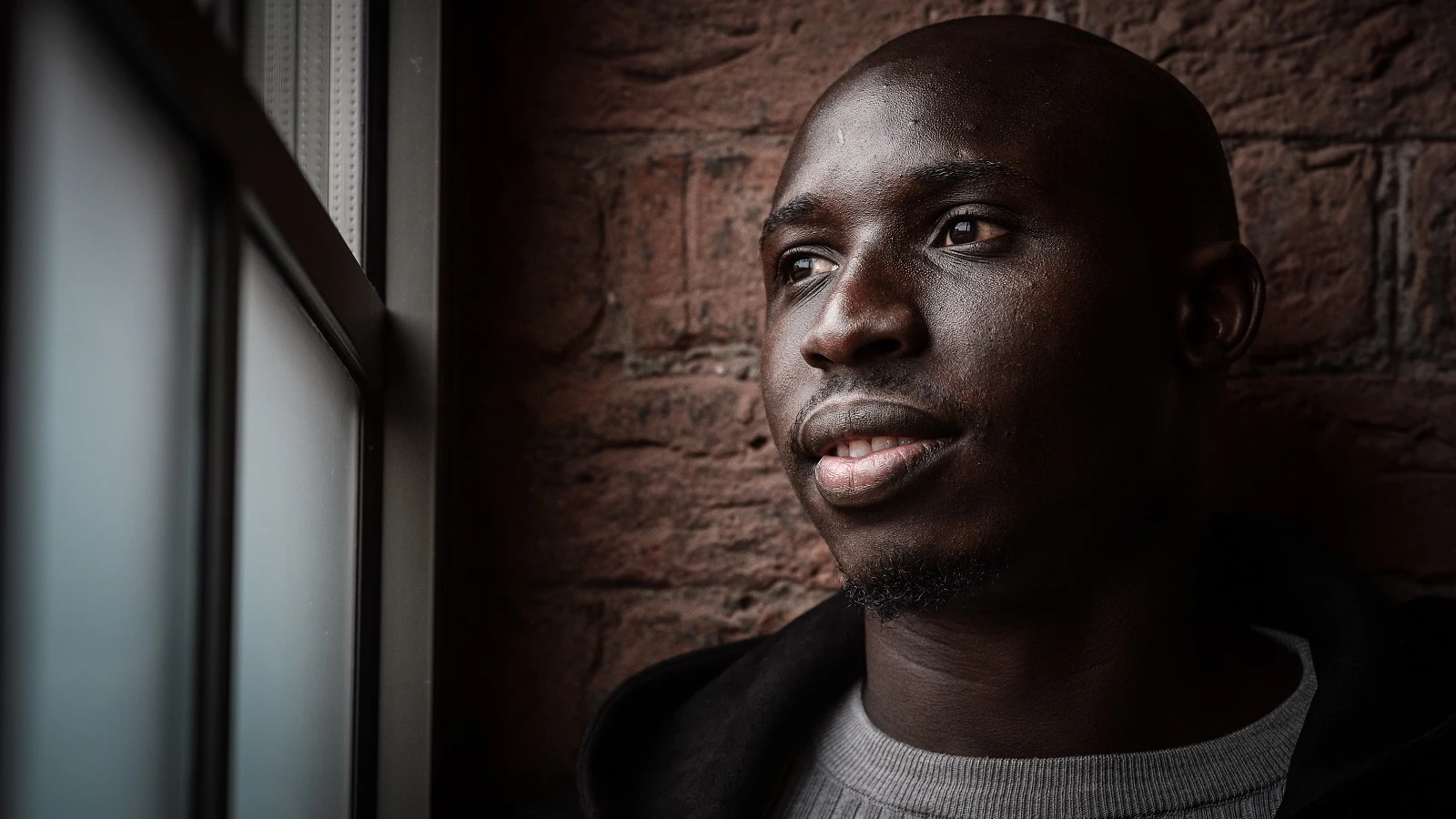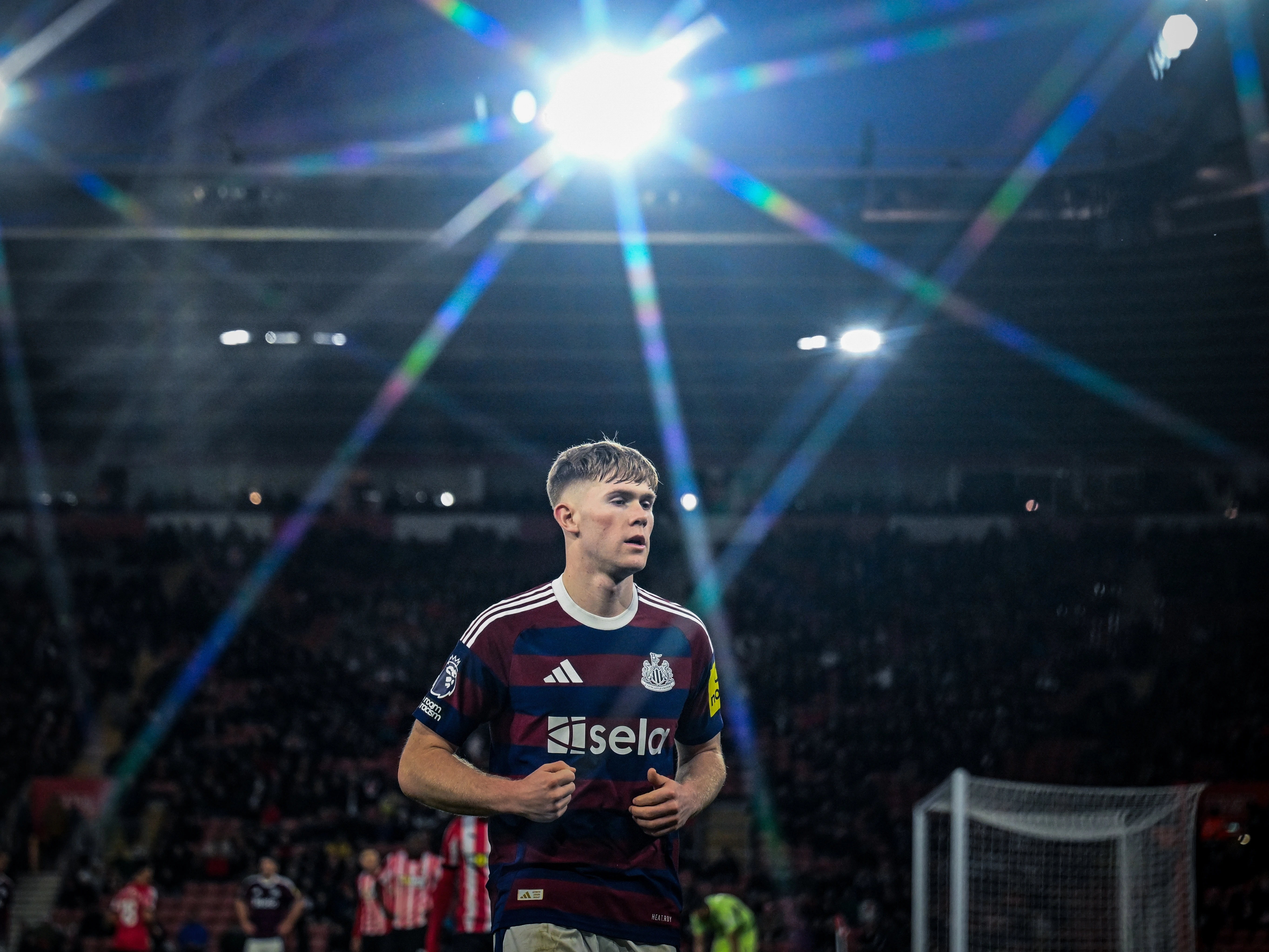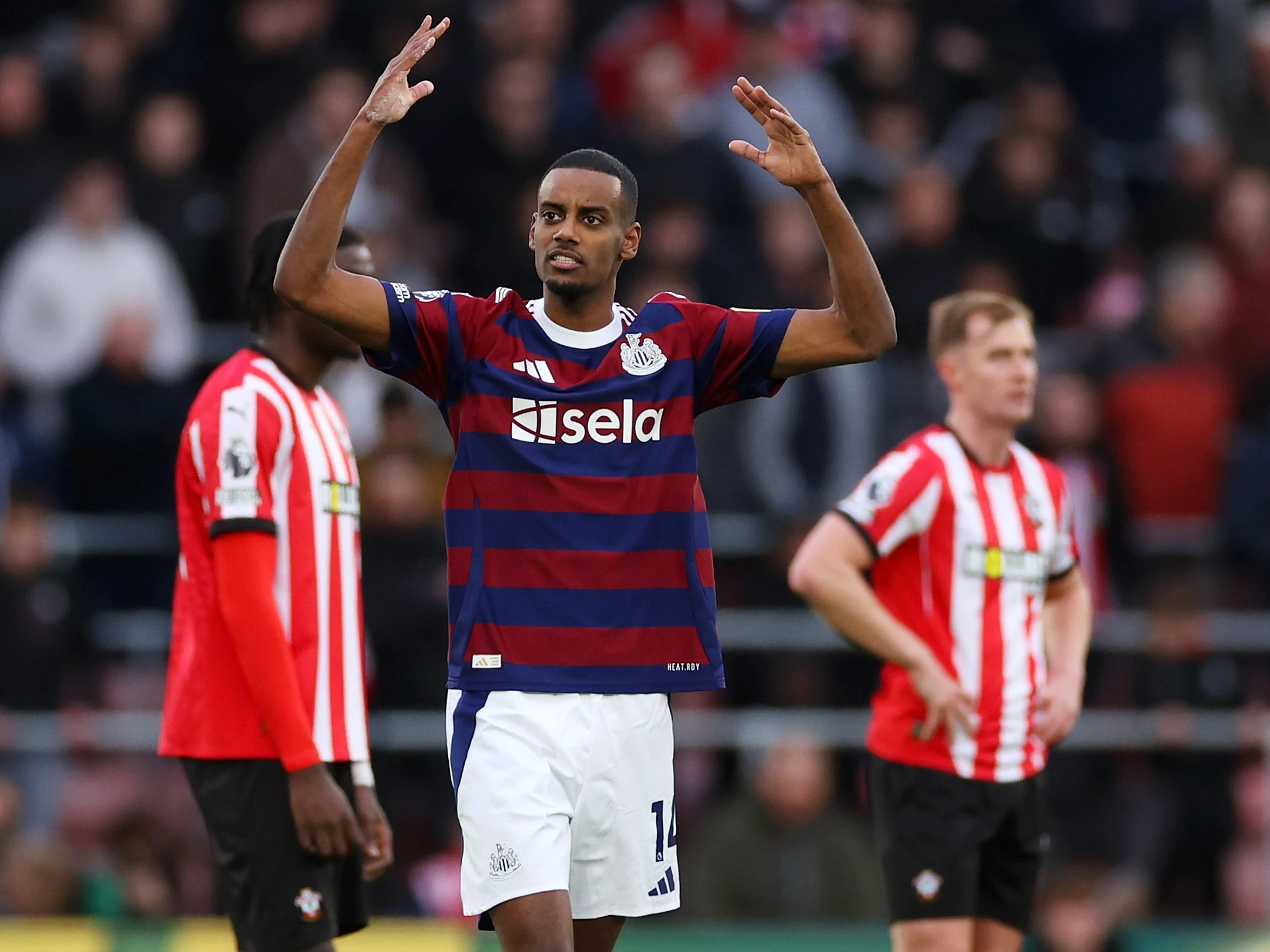His family were there that afternoon, looking down from the stands, awaiting his arrival on the St. James’ Park turf. Just as he does before each game, Mo Diamé walked out of the tunnel and looked up at the sky – not a showy gesture, but an understated one that is now routine. He was thinking of his father.
“When I was four or five he would bring me the ball. He loved football,” explains Diamé, casting his mind back 25 years and smiling at the memory. “I was too young to play in a team so he brought me to a park to play, made me start with the headers, right foot, left foot. When I turned six he brought me to a team in the town and I just kept going, just kept going.
“It’s just thinking, and watching the sky for him, always – when I pass the line, all the time, before every single game. It’s sad, but I’m living with it now. Before every single game, I have this moment when I think about him. Then after, I’ll play my game, and that’s it. It’s become something.”
His father Adama passed away in Senegal when Diamé was 13, in his first season at France’s fabled Clairefontaine academy. He would train there all week and would only return home at weekends. “He had cancer, and when he saw that he was ending he preferred to go to Senegal to pass away there, so I wasn’t there. It was a sad moment of my life, but one moment that helped me a lot to become a man. I always have this feeling when I go inside the pitch, all the time I think about him before the game. It’s just my extra motivation – to become a professional player to look after my family.”
With those thoughts still fresh, and feeling that sense of responsibility towards those he cares about, Diamé stepped onto the field to do his job. It was the afternoon of Manchester United’s visit in February. “In the first five, ten minutes, you know already if you’re going to be in a good game or not,” he says. “Your first touch, second, third, fourth – you know if you’re going to have a good game or not. It gives you the extra power to push yourself even when you’re tired.
“It’s this extra thing that you feel inside. You hear the fans as well, pushing you when you intercept the ball. Then you want to intercept another one. You’re tired, but you know you have to keep going.”
And he did. He ran, hassled, harried, tackled and passed, ceasing only at the final whistle when the 1-0 win was secured. It was the game in which he would show, in uncompromising, commanding style, he belonged in black and white. That renewed endeavour and fluency in his game has characterised his own renaissance at the heart of a dogged United team.
The Senegalese midfielder returned from holiday last summer knowing, on the back of an underwhelming first year at the club, that he would have to graft for his future. He came back, in his own words, “really focussed and ready for everything”, but in need of the continuity only a run of games can bring.
It is both telling and uplifting that now, as he reflects on how he overcame one of the trickiest periods of his career, Diamé can laugh as he compares his present mental state to how he felt at the start of the season. “You feel better, even at home,” he says. “You feel better, and your missus feels better as well because she sees that you feel good. As a football player, of course the most important thing is to be playing. Playing changes a lot, a lot in everything, in your life.
“It makes you happy, and even on the pitch you can think, you can see the things before the others. It’s just a feeling – it’s just a feeling that nothing can touch you. That’s the kind of thing you have to continue and still feel, game after game.”
For those who watched him patrol the central areas in that enthralling win, nullifying Paul Pogba and his esteemed teammates so effectively, it is difficult to begrudge him that sentiment. Diamé can be quite hard on himself, but appears to strike a balance between having belief in his ability and the belief he can do better.
“Even when it was harder, I always knew that I could give a lot more to this team. I know the player I am,” he offers. “I was the first one who knew that I wasn’t delivering – I wasn’t playing my best football, and I was the first one to know that. (I was) the first one not happy as well. But I always knew I could get back to my football. I just needed to work, and things will get back.
“They are hard moments when you’re not playing your best football. I’m 30 now but I still feel that I have no problems physically. I know I can give more, and little things, like a ball I’m losing – I could end up not losing these balls. I could get to the opponents’ area to score more goals or give better assists – there are a lot of things I can improve. I know that.
“It’s important to always have targets in your life. That’s what can make you improve and make sure you give more and push yourself. If I am saying now that ‘I’m the best, I’m doing these things well’, I will stop there and the only way I can go is down. So I really think I can give more, and I will do everything to do that.”
Sitting in front of the cheerful Diamé, you sense that a player so driven – and one possessing the presence of mind required to recognise that something had to change this season – must also have a vocal, authoritative side to his on-pitch persona. “I think people who know me, even my missus, say I’m not talking a lot (off the pitch),” he laughs. “I’m a quiet person who likes to watch things more than talk. I’m enjoying my life, I’m happy. I just try to enjoy my life and smile all the time.
“But inside the pitch – and I don’t think the people see – but I’m trying to push everyone hard and show, if not with the aggressive mentality on the pitch, with my voice as well. In this last maybe five or six games we had a lot of ten, 20-minute (spells when it has been) harder when we need some voices. Jamaal (Lascelles) is here to do it, but it’s always good to have more people doing it. I’m the one who can give this extra voice to help Jamaal as well.
“Of course, the players hear it and the fans don’t, and the manager, maybe a little bit. But I’m doing my job inside the pitch as well. When we are on the pitch, that’s when I express myself. Sometimes it’s hard, it’s tough, and maybe this extra voice can give this extra motivation that players need.”
Such has been his form, Diamé faced questions on whether he would come out of international retirement after scoring in February’s draw at Crystal Palace. He fondly recalls the Senegal team of the 2002 World Cup, and with this summer’s tournament coming into focus, he says he asked himself the same questions before making his decision in March 2017. But this year, he is happy to support from afar. “I will support them on the TV, and that’s it,” he says.
One of Adama’s proudest moments, adds Diamé, would have been seeing his son represent the Lions of Téranga for the first time in 2011. That thought brings Diamé back to those days when they would play in the park, five minutes from the family home in France. “When he was here, I was only just enjoying, not thinking about anything. Sleeping, eating and enjoying – they’re the only things I was doing,” he says. “When he passed away I started to think about the future, about what my mother was doing to look after us, how she was bringing the money. All this stuff made me think a little bit. With this experience, of course you have to realise that you become a man with responsibility.
“I was young, and my sister and brother too. When I saw my little brother and my mum by herself, it was difficult, a tough moment. For maybe five months I lost my football – I wasn’t the same player. But I had this moment. I said I needed to do it for him. He was the one who brought me to play football, who taught me the first things in football – it was him. I thought, ‘I can’t leave my mother working hard like that for us and not do anything’, so it was the easy way for me to help her.”
He has done what he set out to do at 13. The satisfaction that comes with that must also bring pride? “I think I’ve done well in this part, and I’m proud of it,” he nods. “Hopefully I can finish my career and still look after them.
“I’m definitely proud, to be honest. I’m proud of my career. Being older now, the most important things that I’m thinking now, to be more proud than I am at the moment, is to make sure that I secure the rest of the lives of my family – that’s the next step, I would say. But yes, of course, I’m proud.”
It was fitting, then, that the very people he plays football to help were at St. James’ Park on the afternoon of his finest display for the club to date. Diamé’s siblings were there with their friends; his mother sat alongside them. “You don’t want to stop running for them,” he smiles. And that day, for 90 minutes at least, he didn’t.




